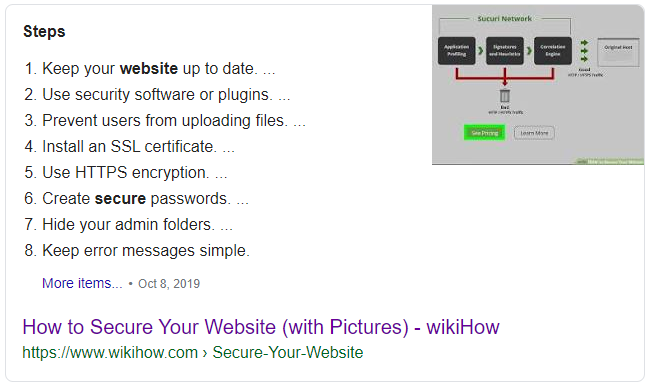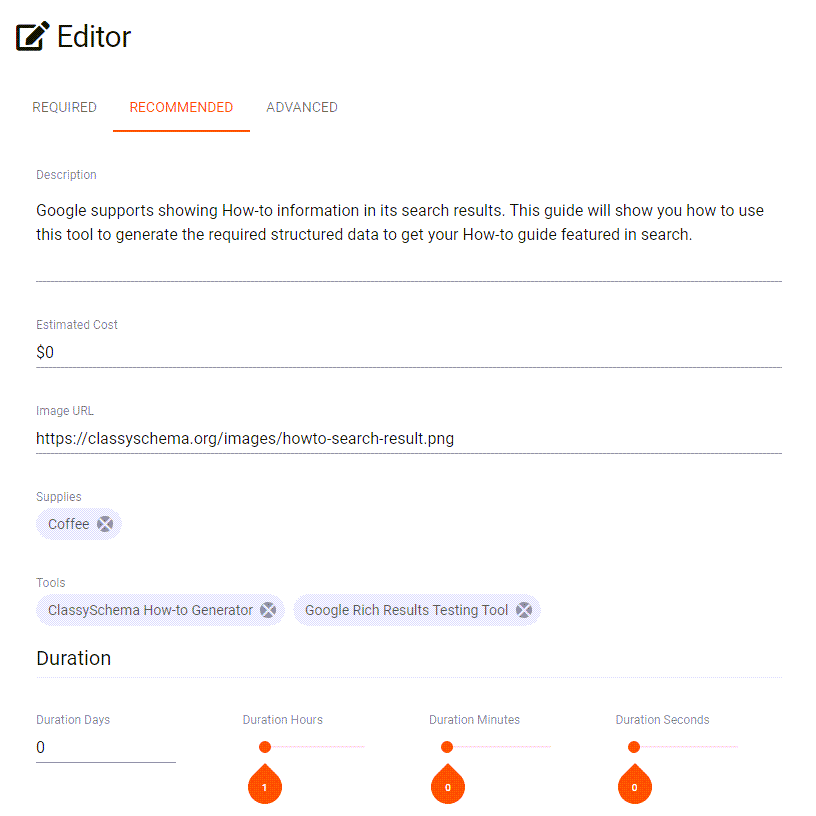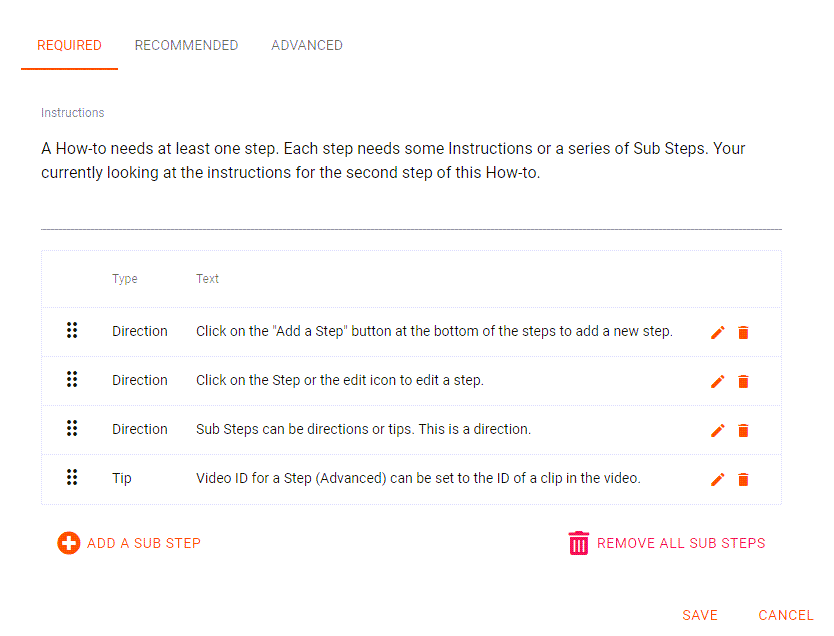
Google supports showing How-to information in its search results. This guide will show you how to use this tool to generate the required structured data to get your How-to guide featured in search.
Estimated cost: $0
Total time: 1 hour
Supplies
- Coffee
Tools
- ClassySchema How-to Generator
- Google Rich Results Testing Tool
Test
Setting up the basics

Sub Steps
- The top section of the editor contains information about the How-to under tabs for Required, Recommended and Advanced. Fill in as much as you can.
- Only Name is required, but the more you fill in, the more features you can get.
- Video ID (Advanced) can be used to reference a marked up video on the How-to. This website also has a generator for Videos.
- Id (Advanced) can be used to let other structured data reference this How-to.
Adding Steps
A How-to needs at least one step. Each step needs some Instructions or a series of Sub Steps. Your currently looking at the instructions for the second step of this How-to.

Sub Steps
- Click on the "Add a Step" button at the bottom of the steps to add a new step.
- Click on the Step or the edit icon to edit a step.
- Sub Steps can be directions or tips. This is a direction.
- Video ID for a Step (Advanced) can be set to the ID of a clip in the video.
Adding Sections
Steps can optionaly be grouped into sections. Click "Add a section" to create a new section and drag the sections and spets around to put them in the order you want. If you use sections, all steps have to be in a section. So there is always a section at the top.
Test2
Getting the structured data
Below the editor is the code section which provides you with the structured data based on what you enter. You can chose between several structured data formats.
Sub Steps
- Google recommends Json-ld. Microdata is more fiddly as it is placed in your html content.
- The ClassySchema format is a special one we have created to get around scenarios where you can't add Structured Data in the normal ways. It requires a JavaScript library which converts the markup that uses classes into Json-Ld.
Testing
To the right of the code section is a button to test the current structured data in Googles Rich Results Testing Tool.
Sub Steps
- Try and avoid any erors and warnings. However don't panic about them. A warning typically means you may miss out on one type of feature.
